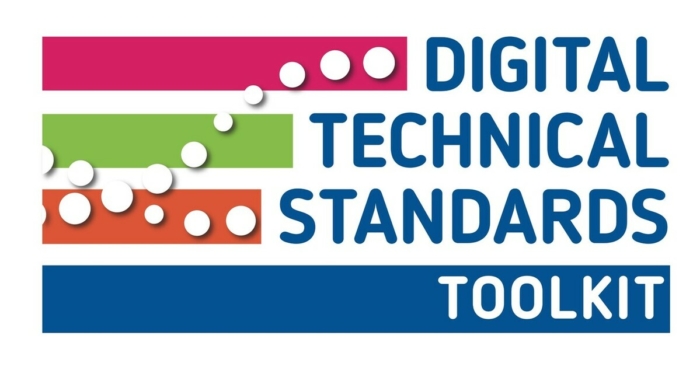In advance of the EPC’s forthcoming live webcast, one of the panellists, Prof Sean Wellington, considers whether the requirements of accreditation help foster new approaches to engineering higher education.
Professor Sean Wellington FIET PFHEA is Pro Vice-Chancellor and Executive Dean of the Faculty of Science and Technology at Middlesex University. A past Chair of the IET Academic Accreditation Committee, Sean has a particular interest in engineering education and the professional formation of Engineers. He chaired the Engineering Council Working Group that developed AHEP Edition 4 and is a member of the Accreditation Review Working Group.
Academic accreditation of engineering degrees is a well-established feature of UK higher education. It is seen as a valuable ‘kite mark’ for degree providers operating in a marketized higher education system and confers some benefits for graduates who wish to seek professional registration. However academic accreditation has both costs and benefits.
Some costs are obvious, such as the staff time required to prepare for an accreditation visit and possibly a fee payable to the Professional Engineering Institution (PEI). The degree provider (the university) also has to abide by the ‘rules of the game’. This is where things can get complicated because there are several sets of rules in play.
The Engineering Council handbook for academic accreditation is a permissive document that defines output standards for the various types of accredited degree through learning outcomes, but it does not define how the learning outcomes are taught or assessed. The standard, Accreditation of Higher Education Programmes (AHEP), also outlines the requirements and process for academic accreditation.
Additionally, there are the documented policies and procedures of the different PEIs licensed by the Engineering Council to accredit degree programmes, and finally the unwritten custom and practice of the PEI and the interpretation and application of the written and unwritten ‘rules’ by a particular accreditation visit panel.
PEIs are encouraged not to define rules beyond the AHEP standard. However, many chose to do so: for example, requiring major group or individual projects, perhaps with a specified credit weighting, specific curriculum content or the use of formal written examinations. The Engineering Council has licensed some 35 PEIs to accredit degree programmes and many higher education providers are working with several PEIs who may have different (and even antagonistic) approaches. These differences are particularly noticeable where units concerned with distinct engineering specialisms have been integrated into larger multidisciplinary engineering schools or departments.
Universities, when required to navigate different PEI requirements, may be forgiven for taking a defensive approach. Visit panels represent another unknown since the outcome of the engagement is heavily dependent on the individual and collective judgement of the panel members. These panel members, normally unpaid volunteers, do vitally important work, however relatively few of the PEIs that accredit degree programmes operate at the scale necessary to support a dedicated staff team for academic accreditation and the training and support for volunteers is somewhat variable. Panel members may also lack familiarity with new approaches to teaching, learning and assessment.
There is a long tradition of scholarship and innovation in engineering higher education so change is possible. For accreditation to be conferred, a degree provider must convince the PEI that their approach is equivalent to established practice and PEIs have different ‘red lines’ that limit what can be achieved. This has the potential to inhibit new thinking, however professional accreditation can also be used as a convenient defence mechanism by those unwilling or reluctant to embrace change.
It should also be possible to use the accreditation process to share innovative practice, particularly where this can help address issues of general concern to the sector. Many PEIs identify and record good practice in their accreditation visit reports, however such practice is not widely shared or celebrated. A mechanism to share innovative practice might involve AdvanceHE and connect with existing awards such as CATE and NTF.
The Engineering Council has responded to concerns expressed by higher education providers and sector bodies – including the EPC – by initiating a review of accreditation. I believe we need to retain the strengths of the current system but reduce unnecessary and unhelpful differences in approach. There are real and perceived barriers to innovation, however AHEP Edition 4, to be launched in September 2020, is quite clear –
“Higher Education providers are encouraged to develop innovative degree programmes in response to industry needs and the Engineering Council does not favour any particular approach to teaching, learning or assessment. The key consideration is that all graduates from an accredited degree programme must meet all of the prescribed learning outcomes. Assessment should be designed to minimise opportunities for students to commit academic misconduct, including plagiarism, self-plagiarism and contract cheating.”
We must not lose our willingness to innovate. For example, our recent experiences of remote teaching and assessment forced by the COVID-19 crisis can shape long-term changes to our teaching, learning and assessment practice that will benefit students. To this end, we should work with Engineering Council and PEIs to support the current accreditation review and ensure unnecessary barriers to innovation are removed.
The live webcast ‘Accreditation & Innovation’ will be held at 2pm on 14th July 2020. Registration is free to EPC members, but booking is essential. This webcast is part of the New Approaches to Engineering Higher Education series, held in partnership with the IET. Recordings from the webcast series are available on the past events page.




